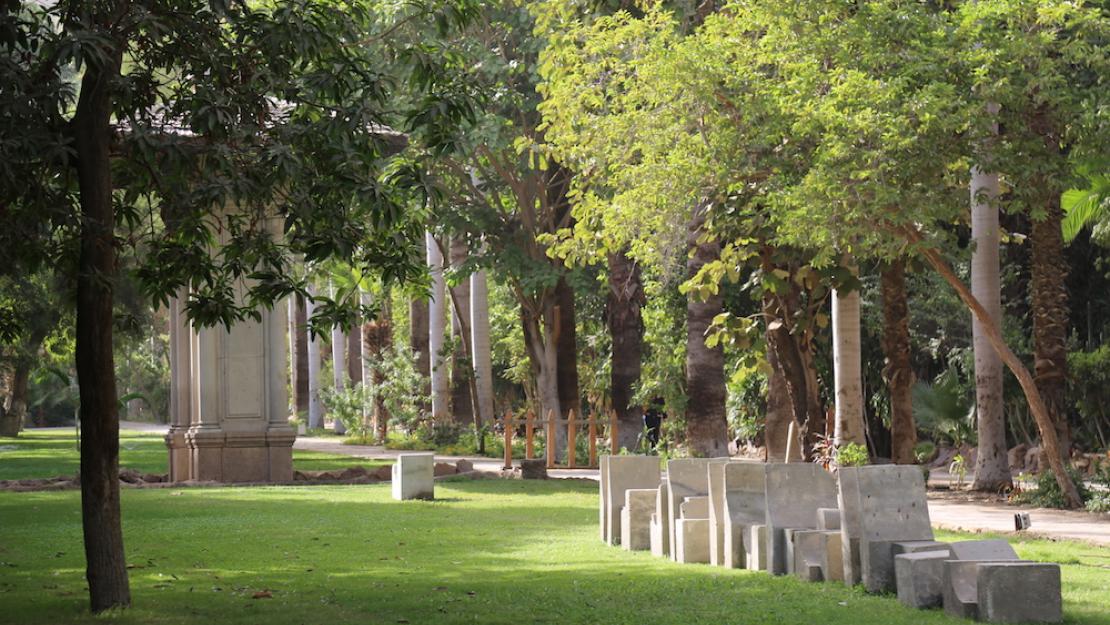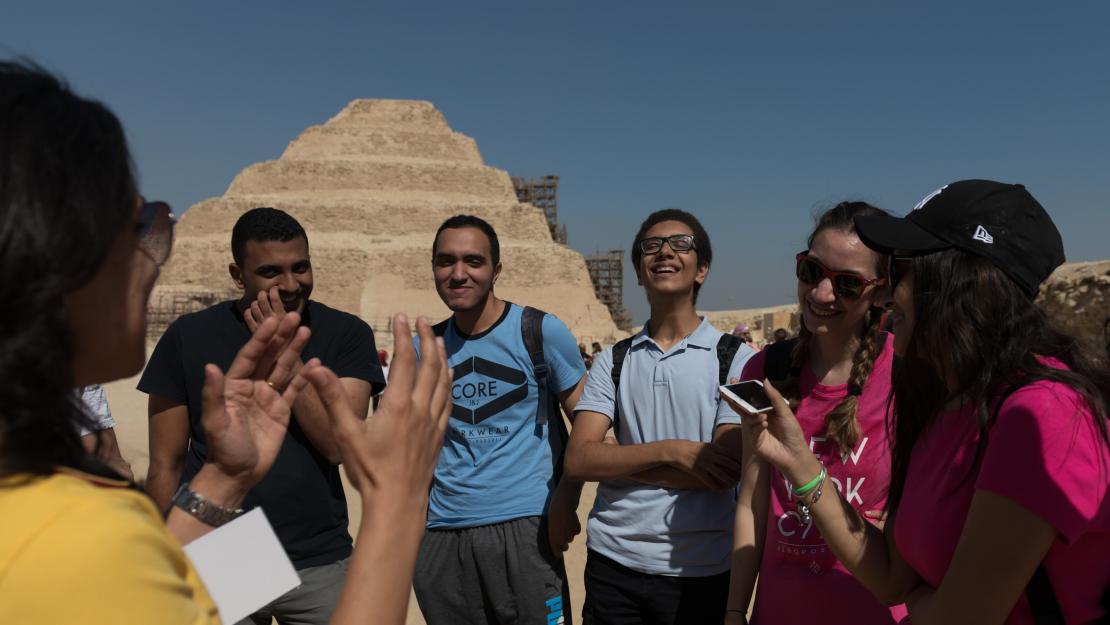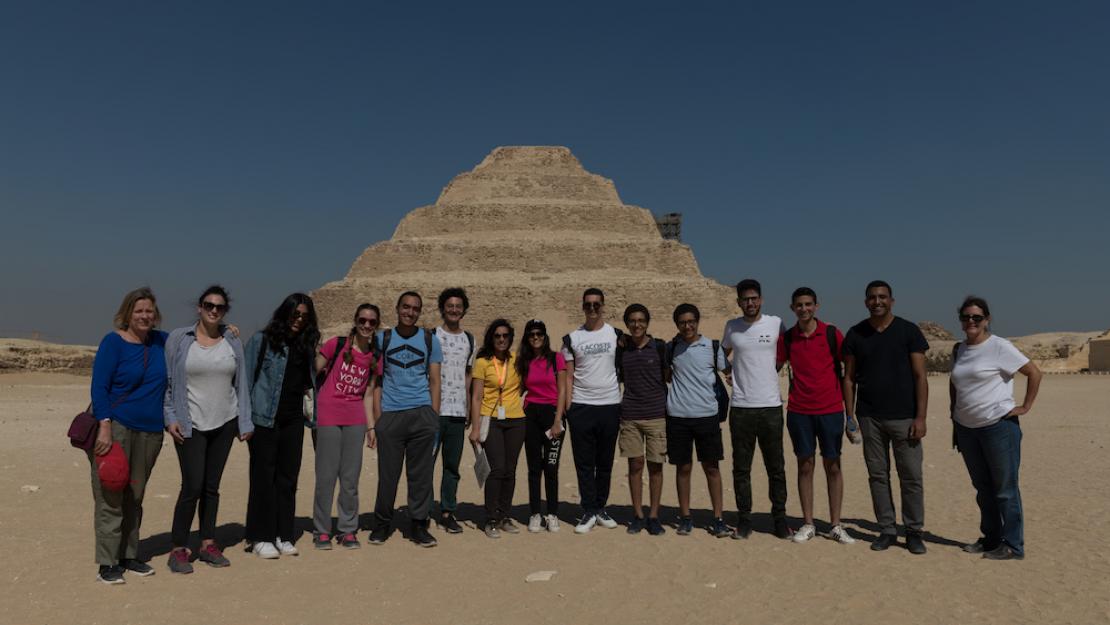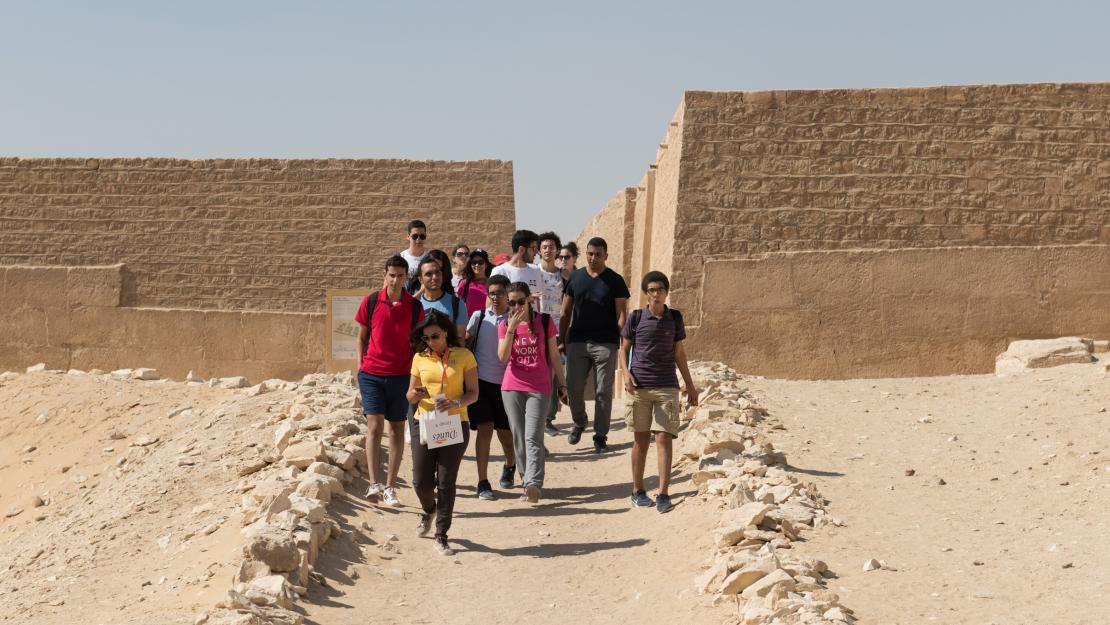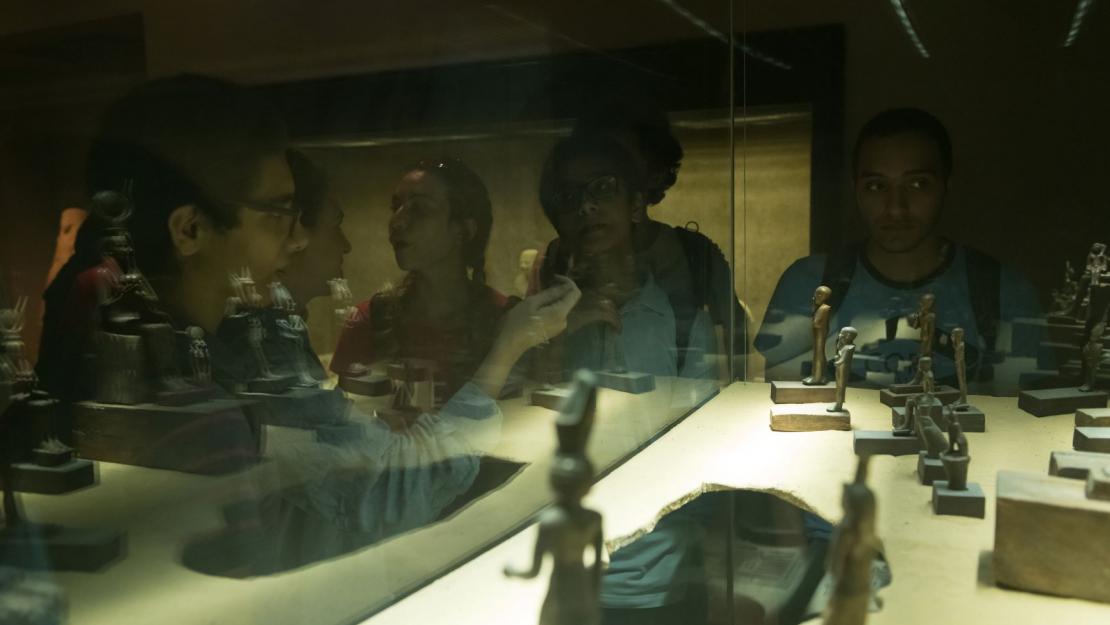AUC Celebrates Inauguration of Sadat City University Center for Career Development
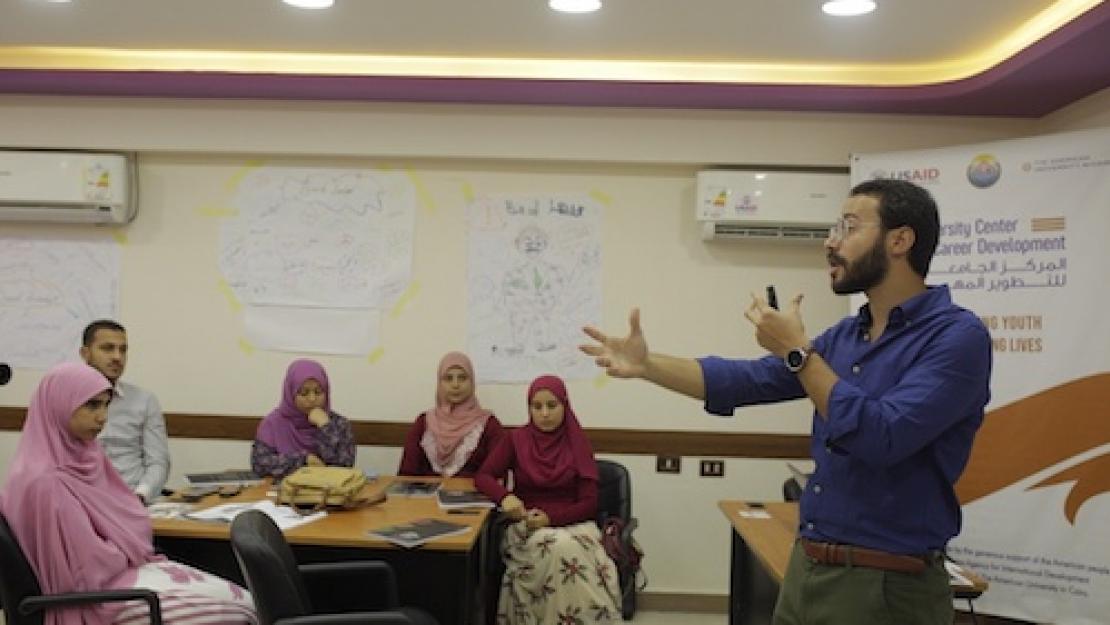

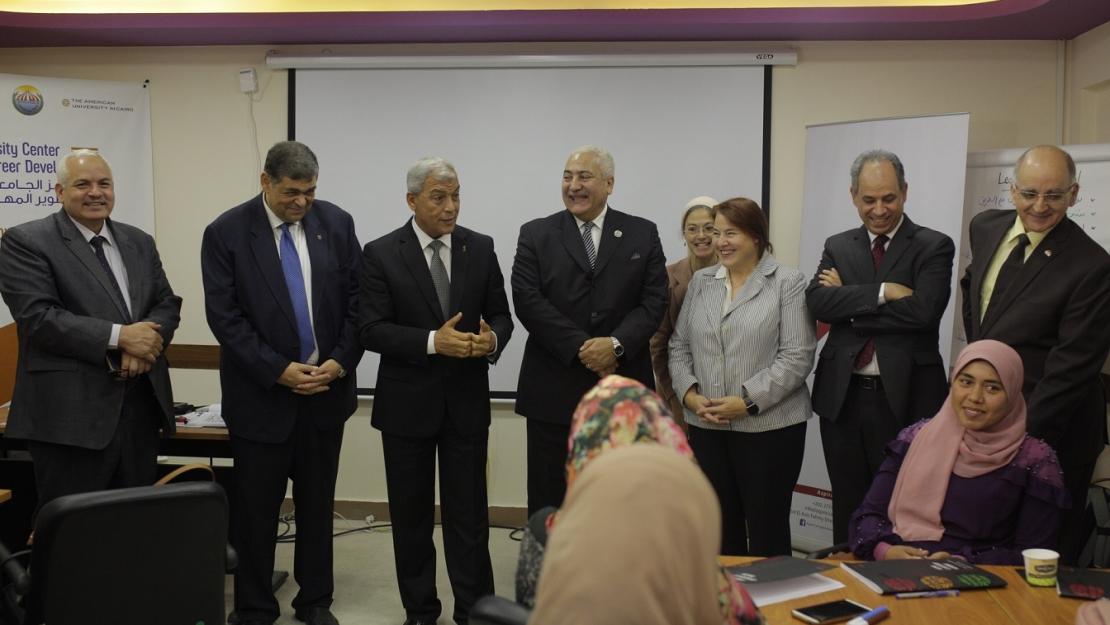

AUC celebrated the launch of a new USAID-funded University Center for Career Development (UCCD) at the University of Sadat City.
This inauguration comes after the opening of two other UCCDs at Mansoura University, in addition to a center at Minia University and another at Beni Suef University, making the UCCD center at Sadat University the fifth to be opened under the four-year University Centers for Career Development project.
The center, one of 20 centers set to open at 12 public universities in Upper Egypt, the Delta and great Cairo area, was established as a part of the larger University Centers for Career Development project that offers students a comprehensive set of career management services, training for employment and entrepreneurship to increase the graduates’ competitiveness.
To ensure the sustainability of the centers and their career services, AUC's Career Center team will train and certify the staff of the University of Sadat City.
AUC Provost Ehab Abdel-Rahman expressed his excitement about the new center, saying, "We are pleased to partner with the University of Sadat City to establish a University Center for Career Development that will contribute to qualifying students for the labor market and developing their employability skills, thus positively impacting the reduction of unemployment in the governorate. We thank USAID for funding this project that aims at spreading career guidance services in Egyptian universities.”
Rebecca Latorraca, USAID deputy mission director asserted, "Egypt's economy and future rely on the active participation of its youth. That's why for the past several years, USAID has worked to create linkages between schools and the private sector so students are prepared for available jobs."
Ahmed Bayoumi, University of Sadat City president, added, "The University has always served the Sadat City community and has been an essential part of the revival of the promising agro-industrial city. Today, as we celebrate the inauguration of the University Center for Career Development, we are not only serving students and graduates by qualifying them and helping them become more employable, but we are also offering a service that will have a positive impact on the economy of Sadat City as a whole. We are delighted and proud of this constructive cooperation with USAID and AUC."
The project aims to reach around 1 million students at public universities in Upper Egypt, the Delta and Greater Cairo. It will help bridge the gap between university education outcomes and the needs of the labor market and industry.
Menoufia Governor General Saied Abbas, as well as senior officials in Menoufia, university presidents and high education experts, also attended the opening ceremony.



